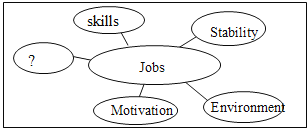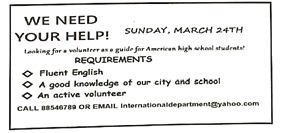题目内容
【题目】 When I was young, I read only comic books. My mother, who was a keen reader, tried to get me to read regular books, but they seemed _______ to me. Why would anyone want to read a book without pictures, I wondered? It would be _______ watching a movie with your eyes closed. And novels seemed to be too _______! In my mind, a comic book was a roller coaster ride _______ a novel was five hours in rush hour traffic.

Whenever she saw me with a comic book, my mother would complain, which totally _______ my comic book reading experience. One summer, she even _______ me. “If you don’t read at least one book this summer, we’re not going to go on our camping trip,” she said. What could I do? I had been looking forward to that _______ for months!
“Fine,” I _______, “I’ll read one book.” _______, my mother took me down to her evil dungeon (地牢), the local ________, where the librarian ________ The lion, the Witch and the Wardrobe, the first book of The Chronicles of Narnia by C.S. Lewis. I unwillingly ________ the book while my mother and the librarian exchanged a(n) ________ glance.
When we got home, I cracked the book open and started reading. I ________ I’d read the first few pages then skip to the end because I knew my mother would ________ me about it. Imagine my ________ when my mother called me to dinner and I was halfway through the book! ________ a comic book was a roller coaster ride, the novel was all the rides at Disney world rolled into one!
I ________ reading the entire The Chronicles of Narnia series that summer, which I consider the ________ of my great friendship with books. Now I read an average of one book a week, and sometimes my wife ________ that I read too much!
【1】A. strangeB. boringC. commonD. easy
【2】A. throughB. ofC. likeD. for
【3】A. thickB. thinC. shortD. long
【4】A. whileB. beforeC. afterD. as
【5】A. sharedB. ruinedC. broadenedD. recorded
【6】A. comfortedB. punishedC. threatenedD. reassured
【7】A. summerB. tripC. bookD. tent
【8】A. agreedB. reportedC. askedD. denied
【9】A. SuddenlyB. SecretlyC. ExcitedlyD. Generally
【10】A. bookstoreB. officeC. supermarket
【11】A. describedB. revealedC. recommendedD. arranged
【12】A. acceptedB. printedC. postedD. showed
【13】A. nervousB. casualC. admiringD. understanding
【14】A. rememberedB. figuredC. suggestedD. promised
【15】A. tellB. consultC. challengeD. quiz
【16】A. sorrowB. angerC. fearD. surprise
【17】A. IfB. UnlessC. OnceD. Because
【18】A. gave upB. turned upC. ended upD. picked up
【19】A. startB. resourceC. spotD. goal
【20】A. confirmsB. complainsC. hopesD. suspects
【答案】
【1】B
【2】C
【3】D
【4】A
【5】B
【6】C
【7】B
【8】A
【9】C
【10】D
【11】C
【12】A
【13】D
【14】B
【15】D
【16】D
【17】A
【18】C
【19】A
【20】B
【解析】
这是一篇记叙文。作者小时候很喜欢阅读漫画书,认为没有图画的书非常无聊。在母亲用不去露营旅行的威胁下,作者接受了母亲和图书管理员的推荐,阅读《纳尼亚传奇》,并且深深为之着迷,从此开始了与书籍的友谊。
【1】考查形容词。A. strange陌生的;奇怪的;B. boring无聊的;C. common普通的;D. easy容易的。根据下文Why would anyone want to read a book without pictures, I wondered?可知,作者对没有图画的书感到很无聊。故选B。
【2】考查介词。A. through通过;B. of属于;C. like好像;D. for因为;为了。句意:那就好像眼睛闭着看电影一样。故选C。
【3】考查形容词。A. thick厚的;B. thin瘦的;C. short短的;D. long长的。根据下文a novel was five hours in rush hour traffic可知,小说在作者看来似乎太长了。故选D。
【4】考查连接词。句意:在我的脑海中,一本漫画书就像坐过山车,而一本小说在交通高峰期要花五个小时。表示前后文的对比,使用连接词while,故选A。
【5】考查动词。A. shared分享;B. ruined毁灭;C. broadened拓展;D. recorded记录。根据上文my mother would complain可知,母亲的抱怨彻底毁了作者的阅读体验,故选B。
【6】考查动词。A. comforted安慰;B. punished惩罚;C. threatened威胁;D. reassured使安心。根据下文If you don’t read at least one book this summer, we're not going to go on our camping trip可知,母亲为了不让我看漫画书,用不去露营来威胁我,故选C。
【7】考查名词。A. summer夏天;B. trip旅行;C. book书;D. tent帐篷。根据上文go on our camping trip可知,作者一直期待着那场旅行。故选B。
【8】考查动词。A. agreed同意;B. reported报告;C. asked询问;D. denied拒绝。作者想要去旅行,因此只能同意母亲的提议。故选A。
【9】考查副词。A. Suddenly突然;B. Secretly秘密地;C. Excitedly激动地;D. Generally通常。作者同意了母亲的提议,因此母亲非常激动地带作者去了她的图书馆。故选C。
【10】考查名词。A. bookstore书店;B. office办公室;C. supermarket超市;D. library图书馆。根据下文librarian(图书管理员)可知,是当地的图书馆。故选D。
【11】考查动词。A. described描述;B. revealed透露;C. recommended推荐;D. arranged安排。根据后文The lion, the Witch and the Wardrobe是一本书,可知是图书管理员推荐了书籍。故选C。
【12】考查动词。A. accepted接受;B. printed印刷;C. posted张贴;D. showed展示。作者只能不乐意地接受这本书了。故选A。
【13】考查形容词。A. nervous紧张的;B. casual随便的;C. admiring羡慕的;D. understanding了解的。句意:我母亲和图书管理员交换了一个理解的眼神。故选D。
【14】考查动词。A. remembered记住;B. figured认为;计算;C. suggested建议;D. promised承诺。句意:我认为我应该先读几页,然后跳到最后一页,因为我知道妈妈会问我这个问题。故选B。
【15】考查动词。A. tell告诉;B. consult咨询;C. challenge挑战;D. quiz测验。作者知道母亲肯定会测试书的内容。故选D。
【16】考查名词。A. sorrow悲伤;B. anger愤怒;C. fear害怕;D. surprise惊讶。句意:想象一下,当我妈妈叫我吃晚饭时,我正将这本书看到一半,我有多么惊讶!故选D。
【17】考查连接词。A. If如果;B. Unless除非;C. Once一旦;D. Because因为。句意:如果一本漫画书就像坐过山车,那么这本小说就是迪士尼乐园里所有的游乐设施合为一体!故选A。
【18】考查动词短语。A. gave up放弃;B. turned up出现;C. ended up结束;D. picked up挑选。句意:那年夏天,我读完了《纳尼亚传奇》整个系列。故选C。
【19】考查名词。A. start开始;B. resource资源;C. spot地点;D. goal目标。句意:我认为这是我与书籍友谊的开始。故选A。
【20】考查动词。A. confirms确认;B. complains抱怨;C. hopes希望;D. suspects怀疑。句意:有时我的妻子会抱怨我读得太多了。故选B。

 阅读快车系列答案
阅读快车系列答案






